Question And Answer
Publications
Articles, publications, books, tools and multimedia features from the U.S. Institute of Peace provide the latest news, analysis, research findings, practitioner guides and reports, all related to the conflict zones and issues that are at the center of the Institute’s work to prevent and reduce violent conflict.
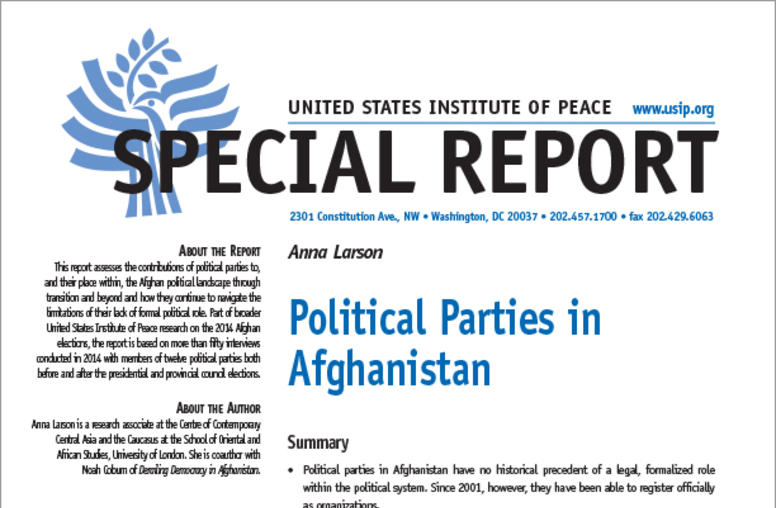
Political Parties in Afghanistan
Political parties in Afghanistan are often dismissed by international and Afghan observers as unruly and highly personalized organizations that contribute little to the democratic process. Yet they continue to play a part in shaping the political landscape, albeit in what might be considered unorthodox ways. This report assesses their history, role, and activities over the last decade and how their future might unfold under and contribute to the country’s new unity government.
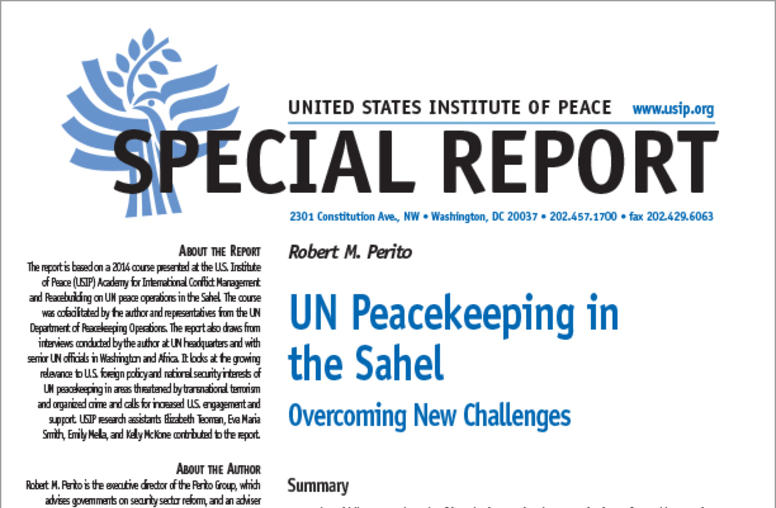
U.N. Peacekeeping in the Sahel: Overcoming New Challenges
New U.N. operations in the Sahel present unprecedented challenges for U.N. peacekeeping. They involve the United Nations directly in the struggle against transnational Islamist terrorism, weapons proliferation, and illicit trafficking by international organized crime. The United Nations must operate in countries with harsh terrain, vast expanses, poor communications, and porous borders. In response, the Security Council adopted more robust mandates based on the peace enforcement provisions of...
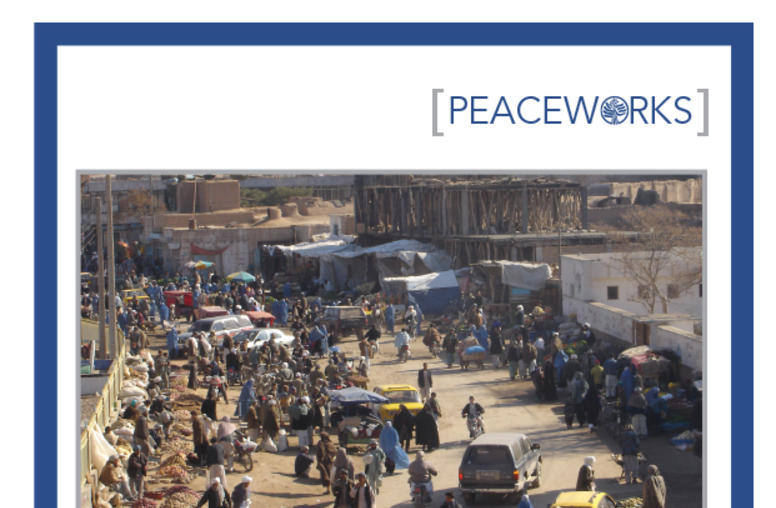
Political and Economic Dynamics of Herat
The city of Herat sits in Afghanistan’s most western province, on the border with Iran, and is significant on several counts. A major trading hub and the largest city in the region, it is in some respects an exemplar for the entire country. One the one hand it is a prevailing spirit of enterprise, on the other persistent insecurity and ad hoc urban development. How the new national unity government in Kabul unfolds will have significant implications for how Herat is able to meet the challenge...
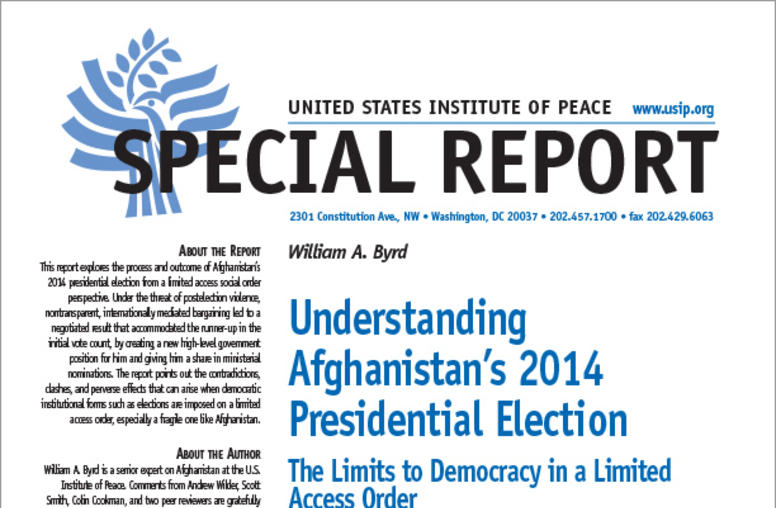
Understanding Afghanistan's 2014 Presidential Election
Afghanistan’s 2014 presidential election did lead to its first peaceful transfer of power. The process, however, was scarcely democratic. This report explores the election and its internationally mediated unity government outcome. Elections—when they can even be held in fragile and conflict-affected situations—tend to be more destabilizing than stabilizing. The overall lesson, as this report makes clear, points to certain critical needs for such countries: a better understanding of inherent i...
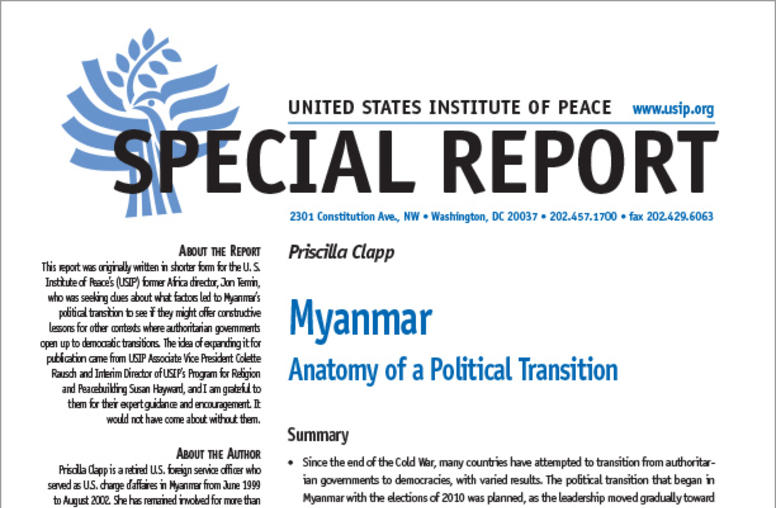
Myanmar
Many countries have attempted to transition from authoritarian governments to democracies, with many false starts. The political transition that began in Myanmar with the elections of 2010 was heavily planned by military leaders to gradually move toward democratization while retaining many of the authoritarian structures of the previous government during the transition. As Myanmar’s success has attracted great interest and support from the international community, this study analyzes the elem...
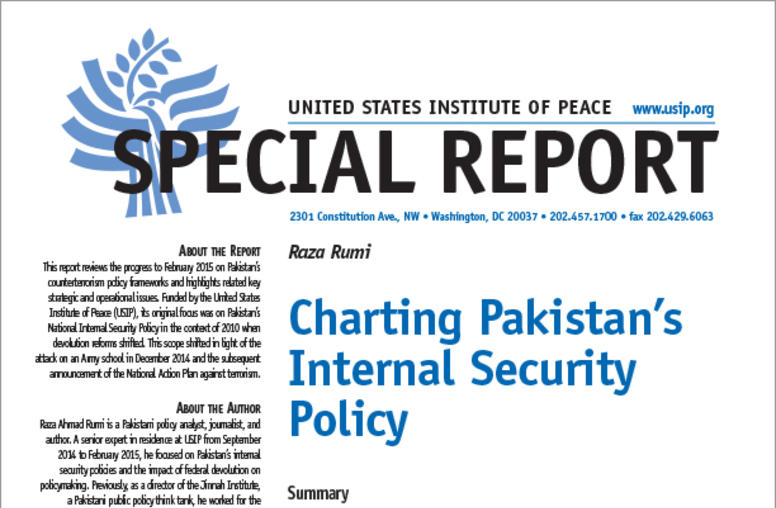
Charting Pakistan’s Internal Security Policy
Traditionally ruled by military or quasi-military regimes, Pakistan is struggling to strengthen its democratic governance but the military remains in charge of country’s security policy. This period of incremental democratization corresponds to the unprecedented rise in terrorism and domestic insurgencies that have challenged state capacity and taken a toll on both the morale of the country and the economy. This report reviews Pakistan’s progress in devising and implementing counterterrorism ...
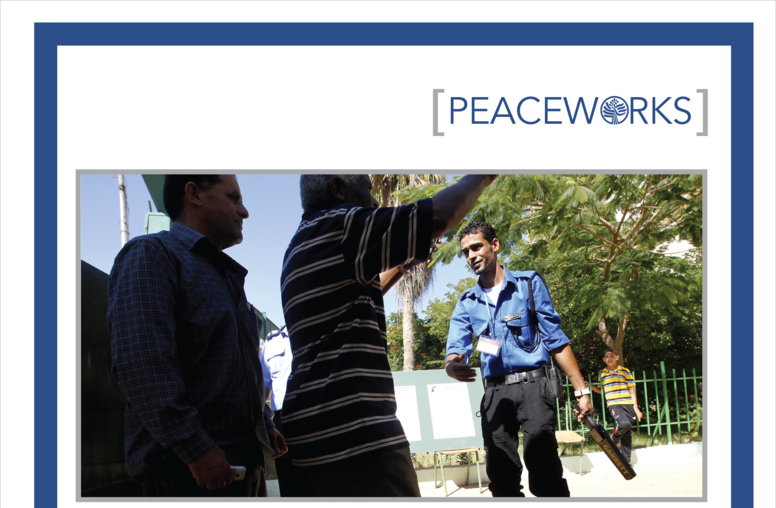
Libya’s Next Elections: A Step Forward or a Step Back?
Since the uprisings in Libya began in February 2011, the country has seen considerable and almost constant upheaval. International players have tried to facilitate a transition to democracy, but success has been fleeting. Now, in the midst of political division and internal conflict, Libyans are attempting to hold presidential...

Scott Worden on Afghanistan’s Elections
Just back from Kabul, Scott Worden shares his analysis about the mood on-the-ground with the long overdue parliamentary elections set to take place this weekend. Taliban interference, fraud and voter turnout will greatly impact the election’s legitimacy, which will foreshadow what to expect for the 2019 presidential election.
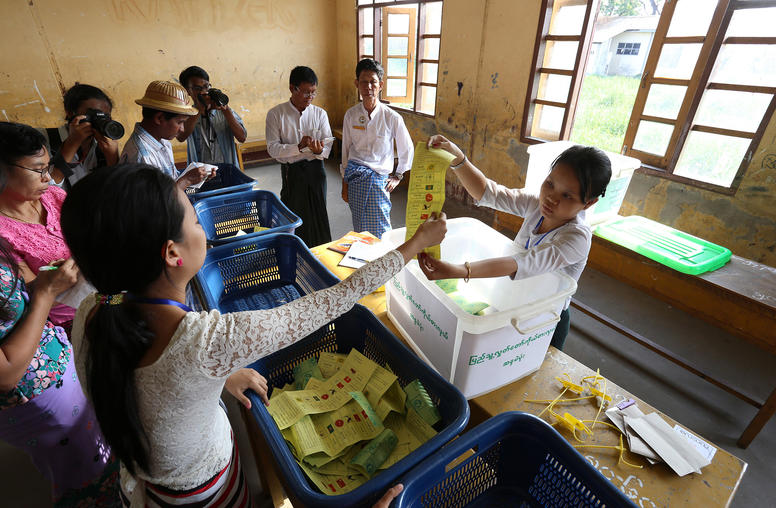
Myanmar’s 2020 Elections and Conflict Dynamics
In late 2020, Myanmar will hold a general election for more than a thousand seats in Union, state, and regional legislative bodies. The next year and a half will also see two high-level, conflict-laden processes capture domestic and international attention—the 21st Century Panglong peace conference and possible attempts to repatriate Rohingya refugees. This report evaluates the environment in which the peace process, Rohingya repatriation, and the election intersect and identifies opportunities for mitigating conflict in the run-up to the election.

Amb. Bill Taylor on Ukraine’s Presidential Elections
Following his election observation, Taylor discusses Volodymyr Zelenskiy’s victory and how he can build support at home and abroad. “The president-elect is already getting a lot of support from the international community,” and if he implements the pro-Western policies he advocated during the campaign the U.S. will continue to strengthen bilateral ties, says Taylor.